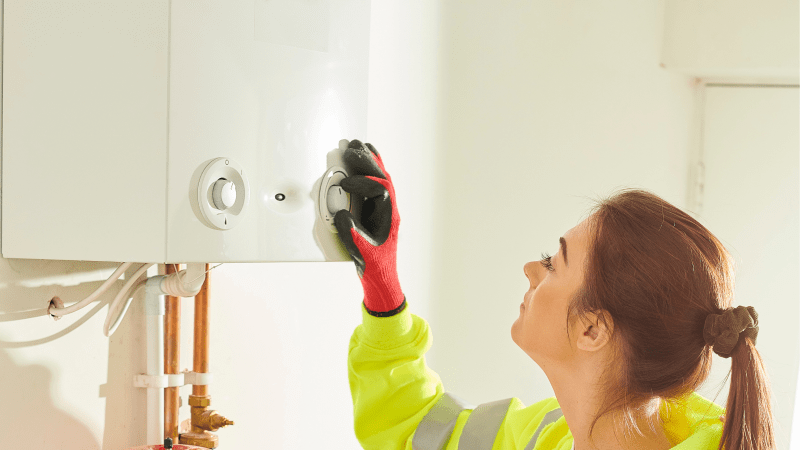Connecting...
Is the heating sector ready for the heat pump revolution?
over 4 years ago

Replacing gas boilers with heat pumps could cut carbon emissions from home heating by 73% according to experts. With the cost of heat pumps set to fall and the government offering households subsidies of £5,000 from next April to help them make the switch from gas, the industry is expecting demand to rise rapidly. However, there are concerns that the heating sector isn’t prepared for such fast-paced growth.
The upfront cost of replacing a gas boiler with heat pump technology is currently high although one of the country’s top heat pump research centres, based in Slough, expects prices to fall so that they become similar to the cost of a traditional gas boiler. The price drop, coupled with incentives to encourage domestic and commercial customers to choose low carbon options such as heat pumps and heat networks, is expected to drive demand.
Is the heating sector ready?
Upscaling the heat pump industry will require massive investment in installer training and there is concern in the sector that a lack of qualified engineers plus low consumer awareness could hamper plans to roll out heat pumps on a major scale. Concerns have also been raised about the strength of supply chain and availability of parts.
British Gas has called on the government to provide more support to deliver decarbonisation on the scale required. The company has suggested that this might include a long-term energy efficiency programme to improve homes and other buildings and a clear policy framework on decarbonising heat.
Many experts are also encouraging an openminded approach to decarbonising the heating sector, which considers a wide range of low carbon heating options including heat networks and hydrogen. Other options are being explored. Hydrogen heating is currently being trialled in the small North East village of Winlaton where 668 homes, the local school and small businesses are being fuelled by a mix of natural gas and hydrogen.
The road ahead
The government’s Heat and Buildings Strategy pledges to phase out the installation of fossil fuel heating systems by 2035. Consultations will look at how consumers and installers can be encouraged to opt for low carbon heat solutions. In addition, £60m will be spent on encouraging innovation in heating manufacturing to enhance the design and efficiency of heat pump systems and tackle skills gaps.
British Gas recently told H & V News that it is committed to installing 600 heat pumps this year (2021) in social housing through its company, PH Jones, and delivering heating and energy efficiency improvements to 30,000 social homes as part of its commitment to low carbon heat. It is also running a hybrid heat pump trial in the UK, installing 75 air source heat pumps to homes in the West Midlands. These will be air to air heat pumps linked to an existing or new gas boiler.
Key to the success of the plan to switch from gas to renewable technology is consumer interest. Generating demand from consumers and businesses is likely to depend on the level of financial incentives provided by the government to encourage investment in new technologies and heating systems. If corporates and individuals can be persuaded to adopt low carbon alternatives, heat pumps and other alternatives that reduce emissions and help us towards “net zero” have a much better chance of succeeding.
You may also be interested in our article Net Zero UK: The role of HVAC in decarbonising a nation
